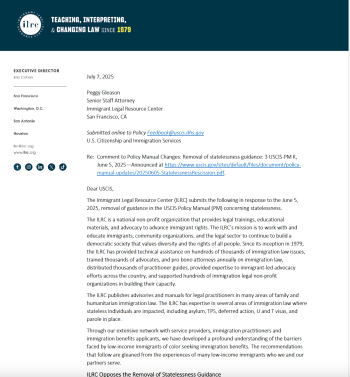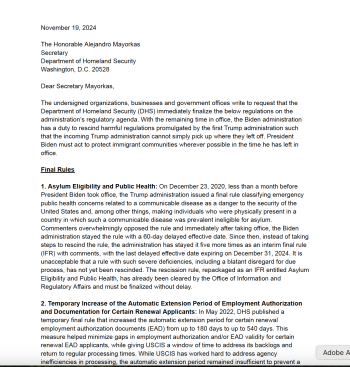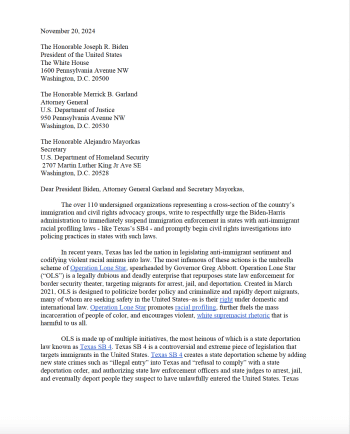Term Page
Policy Advocacy 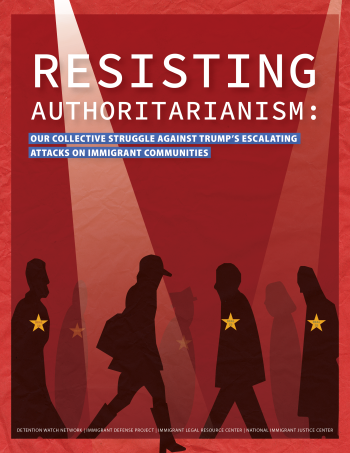
Tracking all the tactics this administration is deploying to target immigrants is overwhelming. In this document, we attempt to summarize some of the key ways the Trump administration is shifting policies and practices to surveil, arrest, detain, deport, and silence immigrants and the people who support them. We do not name every shift; rather, we focus on the weaponization of the criminal legal system, the increasingly authoritarian approach, and the role of the federal budget, which are key tools of the Trump administration’s brutality and also vital sites of advocacy needed to stem the tide.
The IJ roundtable, composed of 71 former Immigration Judges and former Board Members and Appellate Immigration Judges of the Board of Immigration Appeals issued a letter highlighting their concerns about HB 1554 and the importance of having legal counsel in immigration proceedings.
The Department of Homeland Security (DHS) is proposing to change several forms by adding questions about an applicants’ family members, old email addresses and phone numbers and social media account information. The collection of information goes far beyond what the government needs to adjudicate these applications. The information in this resource discusses what the changes are and how to submit a comment.
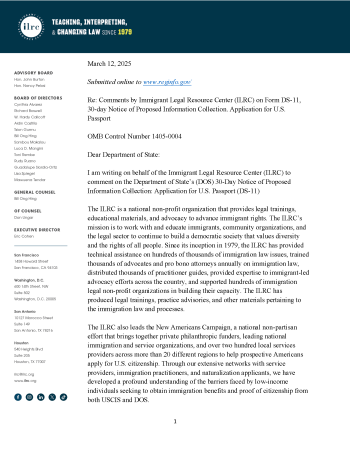
ILRC submitted a comment to the U.S. Department of State opposing a change in passport applications. DOS proposed the elimination of the X gender marker on initial, renewal and corrected passport applications and added the requirement that applicants designate and document M, Male or F, Female for biological sex at birth.
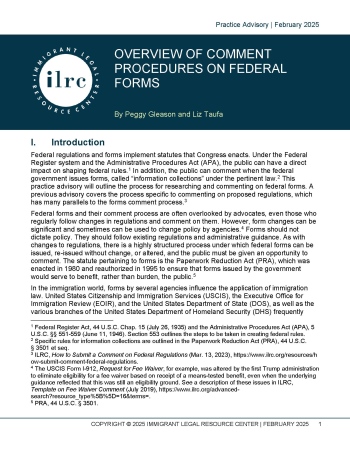
This practice advisory outlines the process for researching and commenting on federal forms. A previous advisory covers the process specific to commenting on regulations, which has many parallels to the forms comment process. Federal forms and their comment process are often overlooked by advocates, even those who regularly follow changes in regulations and comment on them. However, form changes can be significant and sometimes can be used to change policy by agencies. The statute regulating forms is the Paperwork Reduction Act (PRA).
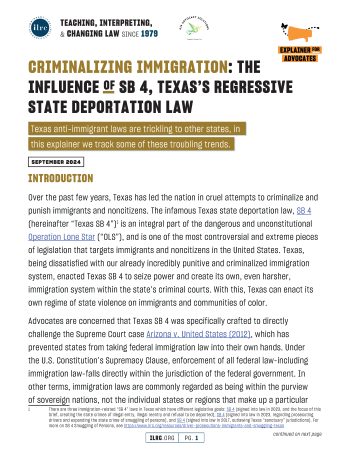
Over the past few years, Texas has led the nation in cruel attempts to criminalize and punish immigrants and noncitizens. The infamous Texas state deportation law, SB 4, is an integral part of the dangerous and unconstitutional Operation Lone Star and is one of the most controversial and extreme pieces of legislation that targets immigrants and noncitizens in the United States. In 2024, state legislatures across the country have proposed bills that further expand the already vast and punishing criminal-legal system by requiring local law enforcement to carry out federal immigration enforcement and creating new crimes that punish the act of crossing into a state without legal status. Unless stopped, Texas SB 4 and its ilk could herald a regressive wave of anti-immigrant state legislation that will endanger noncitizens and U.S. citizens across the country–to a greater extent than occurred in 2010 after the passage of Arizona’s infamous racial profiling law, SB 1070. This report looks at the copycat policies being put forth across the country.
